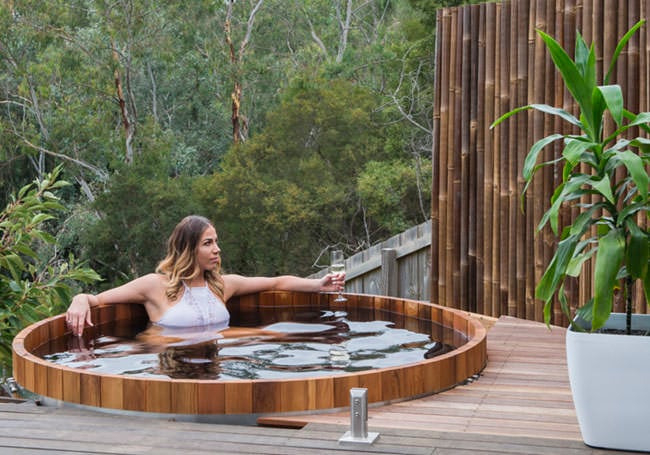The Benefits of a Wood Hot Tub
There are two basic styles of portable, above-ground hot tubs - wood and acrylic (plastic). There are advantages to owning both, but in some ways wood hot tubs come out on top in a head-to-head comparison. Ultimately, it comes down to a personal preference for each user, but here are some of the benefits of choosing a wood spa.
Cost
In most cases, a quality wood hot tub will cost you less than a comparable acrylic or fiberglass reinforced plastic model with the same features. Smaller wood spas (2-person) can run as little as $1,200, while those made of other materials quite often go for $1,800 or more.
Beauty
A wood hot tub made from redwood, cedar, oak, or teak is a thing of beauty. Not only is the geometric shape appealing, the rich colors and grains in the wood are visually stunning and will look great, either in your yard or in your home. If having natural materials around your home and property is important to you, a wood spa is preferable to the more artificial, fabricated acrylic tubs.
Aromas
Since your hot tub experience is one that is meant to appeal to your senses, wood hot tubs provide another benefit over artificial products. They exude a pleasant, natural aroma when hot and wet. Cedar provides a wonderful scent. Unfortunately, plastic spas tend to give off only chemical, artificial aromas.
Durability
The kinds of wood hot tubs are made from have been chosen for two practical reasons: their unique properties when immersed in water, and their durability. Oak is legendary for its hardness and durability, which is why it's so prized in all kinds of furniture and many spas.
Unique Properties
All the types of wood mentioned (redwood and cedar particularly) have another important property. They expand when wet and then do not shrink back to the smaller, original size when they dry. This is extremely critical in a hot tub made from wood, because all spaces and seals must be completely leakproof when the spa is full. Combined with their durability, this property makes redwood, cedar, oak, and teak the most used woods in the hot tub industry.









